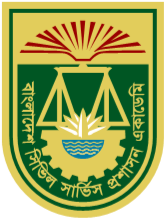An Empirical research on the potentials of Information & Communication Technology for developing remote rural community in Bangladesh
Abstract
Digital Bangladesh envisions, “connecting citizens in ways most meaningful to them” and
bring services to their doorsteps. With the vision to transform the country into a frontier
digital hub, the Government has committed to ensure 100% access to ICT starting from the
very grassroots levels. Thus, in an effort to promoting inclusion and closing the digital
divide, IOM in collaboration with KT and the governments (ICT Ministry) took the initiative
to facilitate advanced network technology connecting the rural residents of Moheshkhali
with the mainland making it the county’s first “Digital Island”. The objective of the
intervention was to improve the overall welfare of the local community in terms of access
to information and fundamental services.
This study was undertaken to find the impact of the intervention program and how it helped
transform the socio-economic condition of the target population. The study found that in
addition to successfully setting up the technical groundwork, there has also been significant
progress in education and health sectors. The survey revealed that 96% of the people have
noted a positive change thanks to the project. Whereas 97% of the people attribute
improvements in the community as a result of the program. The findings also identified that
the distance learning program and multimedia classroom facilities have improved the quality
of primary school education. Likewise, the mobile healthcare facility established by the
project also contributed to positive change in the public healthcare service. But the due to
lack of digital platform, social service and other public service are not duly fulfilled the
public interest.
The findings of the research are sufficed to prove the research hypothesis that Information
and Communication Technology has a pivotal role to play in developing remote rural
communities of Bangladesh. However, the project also had a few hindrances that were
revealed from the study and needs improvement. Although the people have expressed their
gratitude for the project, they have also urged to increase the number of community centers
so that a broader number of users can access it. Uninterrupted electricity is still an
underlying factor that needs to be addressed. As Bangladesh makes headway to becoming
a digital society, the Digital Island project paves the way in realizing that goal. The success
of the project can be taken as an example and replicated for other rural areas of the country

